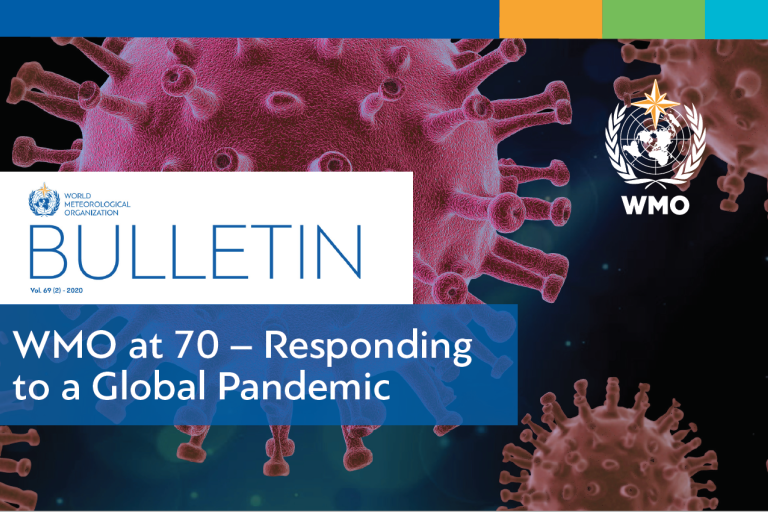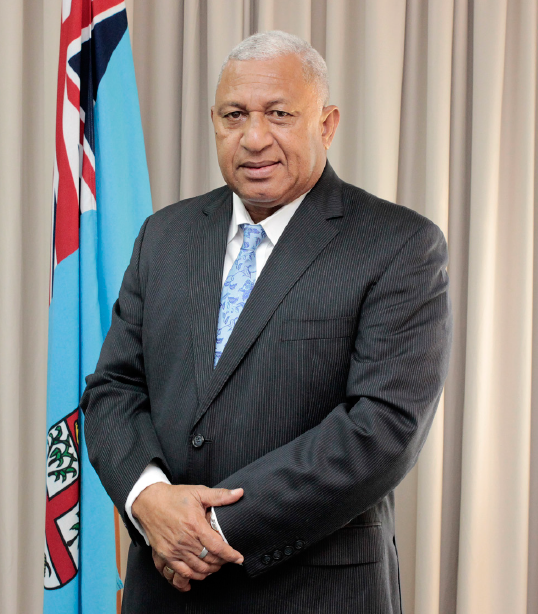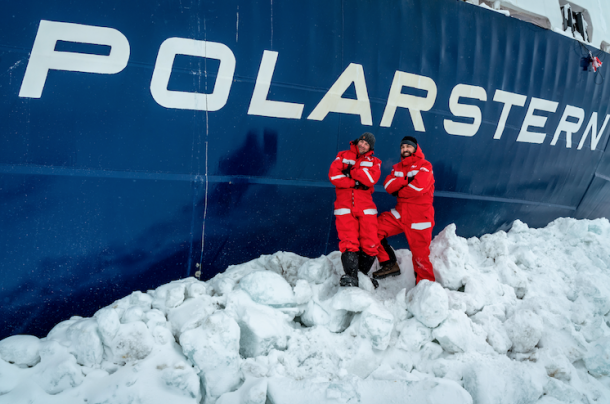Bulletin focuses on WMO at 70 and COVID-19

WMO’s new Bulletin focuses on WMO at 70 – Responding to a Global Pandemic.
“WMO's 70th year was one of crisis. This issue of the WMO Bulletin highlights some of the challenges and solutions being implemented during the crisis,” writes WMO Secretary-General Prof. Petteri Taalas in the foreword to the new Bulletin (Vol 69 (2) - 2020).
“It demonstrates how family bonds in the WMO Community grow stronger in times of crisis. How we are stronger together at 70, than any of us could be standing alone. Together, we look forward to another 70 years of further advancement in science and research, observations and data sharing, and weather, climate and hydrology product and service provision to serve the public good,” writes Prof. Petteri Taalas.
Early warnings and actions to mitigate disasters in pandemic situation looks at whether National Meteorological and Hydrological Services (NMHSs) should be given special assistance to keep performing their duties 24/7, 365 days a year similarly to other critical infrastructures and services.

“Yes, without doubt. The reason: climate change and weather, climate and water-related hazards, and their associated risks to lives and property, have not stopped for the COVID-19 pandemic!”
WMO Members, Working Together in Good Times and Bad shows the commitment of WMO Members to providing support to other NMHS’s if needed during the pandemic, as well as its support for humanitarian efforts.
An article dedicated to the 40th Anniversary of the WMO Tropical Cyclone Programme focuses on an interview with Fijian Prime Minister Frank Bainimarama and the need for impact-based early warnings on what the weather will DO.
“The increasing ferocity of tropical cyclones due to climate change presents the greatest ever threat to Fiji's development. These disasters can shave off years of Fiji's economic growth and, if left unmitigated, will blow us entirely off course from the aims of the 2030 Sustainable Development Agenda,” says the Prime Minister.
Impacts of COVID-19 Restrictions on Observations and Monitoring presents an overview of the main impact on the global observing systems and some potential downstream repercussions on the quality of products and services.
The urgent response to the COVID-19 pandemic, with the need to reduce in-person events, has required rapid conversion to distance learning delivery options to maintain capacity development goals. However, the WMO Education and Training Office (ETR) recognized the value of distance learning long before the recent dramatic changes to workplaces, according to Sustaining Engagement in an Online Course for Trainers.
Climate Services Ecosystems in times of COVID-19. Climate risks remain unabated despite the COVID crisis; systems that make it easier for already-stressed decision-makers to understand and manage climate risks – and opportunities – are critical. Together, society must prepare for and manage the challenges that it can anticipate in order to be more resilient to those it cannot, and climate services ecosystems can help in this regard.
National Hydrological Services - Impacts due to the COVID-19 Pandemic details how a preliminary WMO survey conducted with the focal points of National Hydrological Services (NHSs) of WMO Members scoped out COVID-19 impacts on day-to-day operational hydrological services – data collection, observation, modelling, forecasting and early warning information – as well as the measures taken to overcome these.
Response of Carbon Dioxide and Air Quality to the Reduction in Emissions Due to the COVID-19 Restrictions shows how the restrictions imposed on population mobility and commercial activities have resulted in changes in anthropogenic emissions and in the atmospheric chemical composition. These changes were especially pronounced in urban areas and observable in air pollutants as well as in greenhouse gases. However, there was no noticeable reduction in greenhouse gas concentrations.

The crew, staff and researchers on the RV Polarstern, a German research vessel, found themselves stranded aboard a ship drifting in the ice in the Arctic in March when COVID-19 restrictions made scheduled changes of staff virtually impossible. Two staff from Deutscher Wetterdienst (DWD) recount their story in Stranded at Sea.
WMO Anniversaries – Dates and Facts takes a trip through memorable events and milestones in the history of WMO and its predecessor the International Meteorological Organization.
The Role of the Hydrometeorological Service in the Information Economy is examined and there is a review of the book Tree Story – The History of the World Written in Rings.

